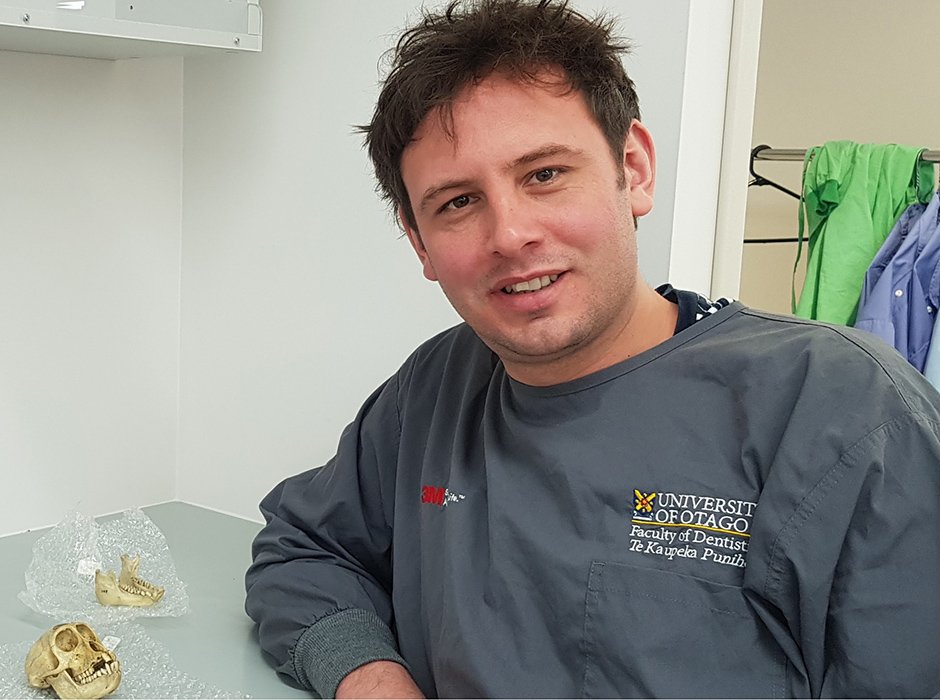
View of the Fayum Depression in Egypt. Photo credit: Matt Borths
Turns out our love of sweet food goes back – way back – to our early primate ancestors, a University of Otago-led study has found.
The work sheds light on the dietary habits of early anthropoids, which includes fossil monkeys and apes, through analysis of tooth chipping patterns and cavities.
Published in the American Journal of Biological Anthropology, the study used fossils from the Fayum Depression in Egypt, an invaluable source for understanding anthropoid evolution spanning from the late Eocene to the early Oligocene period, or 40 to 29 million-years-ago.
Dental chipping patterns in five types of primates were examined and compared with data from living primates.

Dr Ian Towle.
Lead author Dr Ian Towle, of Otago’s Sir John Walsh Research Institute in the Faculty of Dentistry, says the researchers wanted to find out what made up the diet of early primates – hard or soft foods.
“Close attention was paid to the frequency, severity, and location of dental chips. We were also interested in the presence of dental caries, often linked to the consumption of soft fruits in modern primates,” he says.
The group, which included Dr Matthew R. Borths of the Duke Lemur Center Museum of Natural History at Duke University, and Otago’s Dr Carolina Loch from the Faculty of Dentistry, found a remarkably low prevalence of tooth chipping with just 21 of the 421 teeth studied showing fractures.
"Our findings indicate a predominant consumption of soft fruits among early anthropoids. The low prevalence of tooth chipping, particularly in comparison to modern anthropoids, hints at a preference for soft food sources, like ripe, sugary fruits,” Dr Towle says.
The study adds “substantial support” to the hypothesis of limited dietary diversity among early anthropoids, with diversification in monkey and ape diets coming later in their evolutionary history.
“These insights into ancient primate diets provide crucial groundwork for understanding the evolutionary trajectories of our primate ancestors.”
Dr Borths highlights the importance of the Fayum Depression, saying these primates survived “huge climate changes” when the first glaciers formed in Antarctica.
“The Fayum fossil record captures the critical moment when our lineage adapted to this drier, cooler world, apparently fueling themselves with fruit.”
Dr Loch adds this study is “another example of the breadth and diversity of dental research at the University of Otago”.
Publication details
Tooth chipping patterns and dental caries suggest a soft fruit diet in early anthropoids
Ian Towle, Matthew R. Borths, Carolina Loch
American Journal of Biological Anthropology
https://doi.org/10.1002/ajpa.24884
For more information, please contact
Dr Ian Towle
Sir John Walsh Research Institute, Faculty of Dentistry
University of Otago
Email ian.towle@cenieh.es (Ian is currently based in Spain, please email to arrange an interview)
Ellie Rowley
Communications Adviser
University of Otago
Mob +64 21 278 8200
Email ellie.rowley@otago.ac.nz